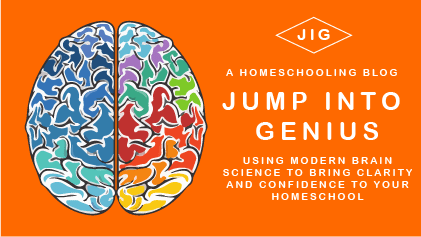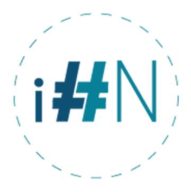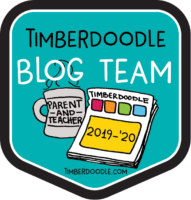Getting past the fight of early or late and diving into what is going on inside the brain to inform us about what children this age need to thrive.
Just go on any homeschool group page, ask about kindergarten and people will practically start shouting at you not to do anything. I mean, it gets pretty heated in there, and if you actually want to start on academics you will face an onslaught of debaters offering up arguments to convince you to leave such insanity and embrace the child as they are.
But, does embracing your child as they are mean you cannot, absolutely, under any circumstances, try to umm…educate them in kingergarten?
I think a lot of this passion against teaching academics in kindergarten is a natural backlash against our industrialized form of education.
You don’t have to refuse to teach your kindergartner just because the ideas of teaching conjures up boring texts and hours at a desk in your mind.
It is true, a kindergartener should not spend 6 hours at a desk and certainly should not be given any boring textbooks or workbooks that they are forced to slog through.
But that little brain of their’s is
Now, if you just want to read a lot of great books to your K child, and then send them outside to explore for hours, and then call them back in to cook and bake with you…that is perfectly fine. That is beautiful. They will learn many things with that lifestyle.
But if you are not comfortable with that, or if your child is begging to “do school” or to learn to read, it is okay to start those things. You don’t have to, but you can, and it will not ruin your child.
The most important thing to remember about your child is that they are five. Their body demands and needs a large amount of gross motor movement and input. They need to run, jump, skip, climb, slide, spin, and roll.
Whether or not you are going to teach them how to read, write, add, and subtract during their kindergarten year you need to make sure they get all the daily physical input they need. I don’t think NOT teaching them any academics guarantees they get this gross motor input.
Yes, many kids this age will run around and get all the movement on their own. But
Gross motor movement is more important than them learning to read and write this year.
“It is our body’s senses that feed the brain environmental information with which to form an understanding of the world and from which to draw when creating new possibilities. And it is our movements that not only express knowledge and facilitate greater cognitive function, they actually grow the brain as they increase in complexity.” Carla Hannaford, Ph.D. - Smart Moves, Why Learning Is Not All In Your Head
Perhaps this is one of the reasons we tend towards having a knee jerk reaction against teaching kindergartners. Our instincts tell us they should be running around, that they NEED to be spinning, jumping and causing a general ruckus.
They do not have to run every waking hour to get the input they need.
Do you ever let them sit and watch a show? Then you must allow that it would not harm them to sit for a bit to do some learning. The more playful and hands-on the curriculum you use at this age the better.
It is better for them to touch math than just to write answers to math questions. They need to connect numbers to the world before numbers will mean anything on the page. There are several programs that understand this need.
It will not hurt your child to include a little daily math play. Just don’t buy a giant text book and make them sit doing arithmetic questions for an hour everyday.
Reading is the next big fight. There are so many fights about reading it is ridiculous. You would think reading is politics. But everything in our modern lives seems to suffer from this polarization and while we get so busy arguing and defending our own
I
I have read too much about reading. And you know what I learned? None of it matters nearly as much as we think. Kids need to learn phonetics and whole words, in addition to tracking, sequencing, and some other skills that are usually left out of reading instruction.
I have learned that a child can learn to read very, very, young and that they can learn to read much older, and will not be behind their peers because they picked books up later.
So it does not matter when you choose to teach your child to read. Calm down, and do what is best for you and your family, it is okay to ignore the raving masses.
If you do want to start now, keep the lessons short. Play with letters and words. Don’t pressure your child, or expect them to be reading fluently a month after you start. Reading well takes time. There are a lot of different skills the brain needs to pick up before a child can read fluently.
In the meantime, whether you decide to start now or later on your child’s journey to reading. Read to them. As much as you possibly can. Read old books, they have much larger vocabularies. Read picture books, chapter books, science books, and history books.
Reading aloud is the best way to fill your child’s brain with all the knowledge they crave at this age.
And playing hard outside is the best way to give their bodies the gross motor experiences they need to get their brains ready for more learning in the future.
Playing with Lego’s, cutting,
There are plenty of play based curriculum and resources on the homeschool market these days, it is also pretty easy to come up with your own play based plans for this year.
You can use this chart to help you think about the different types of nourishment your child needs to be receiving. No matter what you do or don’t do this year, make sure they are being fed these things. If your child is ready to start academics, like
free use with attribution
And don’t let anyone else make you feel guilty for either not doing kindergarten or for doing kindergarten. We live in a free country, the choice is yours, and you know best what your child is ready for right now.
For more about kindergarten check out my post, Homeschooling Kindergarten Science with Real Books, and stay tuned next week for a post delving into teaching Kindergarten Math Through Play.
If you are just starting out homeschooling your first child I highly recommend you spend some time studying how the brain learns. It will not only make you a more informed teacher, but it will help you sort through all the conflicting homeschool advice on the internet and give you confidence as you embark on your journey.


